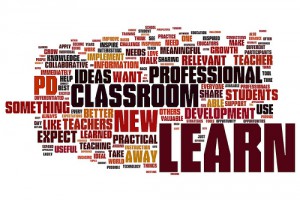If there’s something we all like to talk about, it’s ourselves. Topics related to one’s own life experience are almost certainly guaranteed to spark conversation among students of all ages. Now, not all life experiences are equally suitable as conversation topics. The best are the ones for which everybody has something to say and no one in the group knows more about it than the rest.
1. Childhood favorites. One activity that I have used to practice the imperfect (this works for Romance languages, but can also be used to practice the past tense in other languages) is to have students talk about their favorite TV shows or TV characters when they were kids. With some rare exceptions, we've all watched some TV as we were growing up. If you teach young kids, you can have them talk about their favorite toys from when they were toddlers. In more diverse settings like community colleges, students will have fun finding out what TV characters were popular with different age groups and which ones survived for several generations.
2. Life as an X student. Here, the X stands for whatever type of institution and level you teach: college, high school, middle school, etc. With my college students, I exploit this topic from different angles. For example, when practicing Spanish neuter article “lo”, they have to discuss and come to an agreement on what the worst/the best/the most difficult/the most fun about being a college student is.

3. Routine. We all have particular habits, but not necessarily the same habits as someone else. That's why this is a good topic for an information exchange activity. Students can first take a few moments to think about a number of questions about their own routines (When do you usually wake up? What do you usually have for breakfast? Do you usually dress before or after breakfast?). Then they interview other students in order to find out trends in the classroom: how many students are early risers, how many students leave home without having breakfast, etc.
4. Celebrations. If you choose non-religious national holidays (4th of July or Thanksgiving if you are in the US), all students will have something to say about how they celebrate it. One way in which I've used this topic is to practice the expressions of likes and dislikes. In groups of three, students share what they like and don’t like about these holidays. The end goal for this task is to prepare a brief description of what's good and what's bad about the particular holiday that they would share with someone who is not from their country, in this case, not from the US.
5. Relationships. It's uncommon to find someone who does not enjoy giving advice on relationships based on their own experience. When practicing recommendations, I have my students discuss and then write up a list of 5 suggestions for a successful relationship. For younger kids, the task would be to discuss and agree on 5 suggestions to be a good friend; young adults can come up with 5 things people look for in a partner; more mature adult students can decide on 5 characteristics of a healthy relationship.


